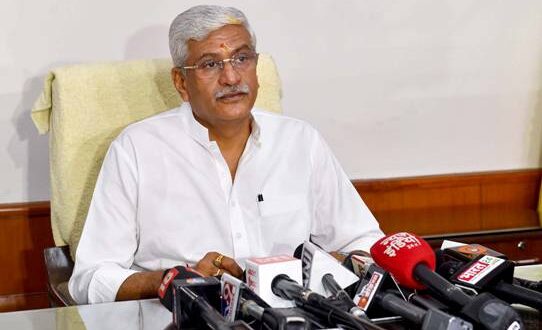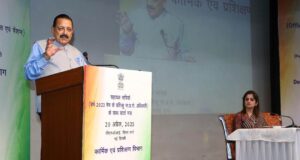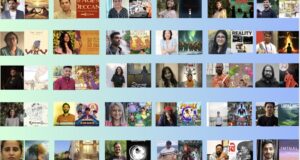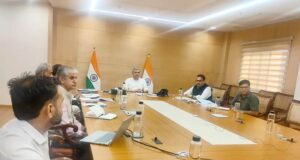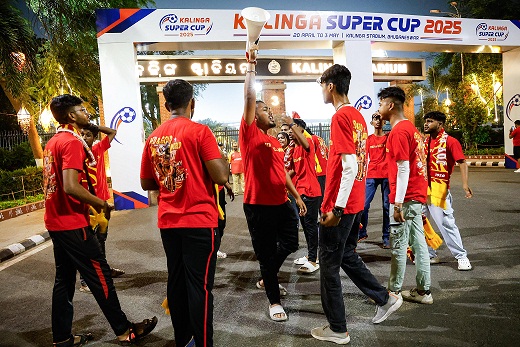Newdelhi:2/12/24:The Government of India actively promotes Indian culture and literature across the country. The Ministry of Culture, through its autonomous bodies, has undertaken various measures for the promotion of cultural tradition and literature in the rural and traditional areas which are given as follows: Sahitya Akademi (SA) plays a vital role in fostering Indian literature in 24 recognized languages.
In addition to its regular programs and publications, SA has initiated several projects and schemes to enhance literary awareness and talent, particularly in rural and traditional areas. Notable among these are the Ek Bharat Shreshtha Bharat and Gramalok series.
Indira Gandhi National Centre for the Arts (IGNCA) focuses on cultural preservation and documentation, promotion of regional languages, promotion of performing arts, and development of traditional art forms.
Centre for Cultural Resources and Training (CCRT) implements scholarships and fellowship schemes like the Cultural Talent Search Scholarship Scheme, Scheme for “Award of Scholarships to Young Artists (SYA) in different cultural fields”, fellowship scheme for the award of fellowships to outstanding persons in the field of culture for the promotion of cultural tradition and literature in the rural and traditional areas.
The Indian Conservation Fellowship Pilot Program (ICFPP) was undertaken by the Ministry of Culture in collaboration with the Metropolitan Museum of Art (MMA) in New York and the Stichting Restauratie Atelier Limbuirg (SRAL), the Netherlands. A Memorandum of Agreement (MoA) was signed between the Ministry of Culture, Government of India, and the Metropolitan Museum of Art (MMA), New York on 19.03.2013 for two years.
Thereafter, a Memorandum of Understanding (MoU) between the Ministry of Culture and the Metropolitan Museum of Art (MMA), New York was signed on 27.06.2016 for the launching of the Indian Conservation Fellowship Program (ICFP) for a period from 2016 to 2021 and was to be undertaken by the Ministry of Culture in collaboration with the Metropolitan Museum of Art (MMA), New York, the Stichting Restauratie Atelier Limbuirg (SRAL), the Netherlands, the Royal Institute for Cultural Heritage, Brussels (“KIK-IRPA”), and the Freer Gallery of Art and Arthur M. Sackler Gallery, The Smithsonian Museums of Asian Art, Washington, DC (“FG”) with support from the Andrew W. Mellon Foundation (the “Mellon Foundation”).
This fellowship aimed to equip the participants with skills to better care for collections at their home institutions and to establish a larger and stronger conservation community in India with international links to professionals in the field. So far, 36 conservators from India have received fellowships under ICFP (17 conservators during Pilot Program and 19 conservators during the Main Program).
The Government of India has recognized the following 11 languages as Classical Languages: Tamil, Telugu, Sanskrit, Kannada, Malayalam, Odia, Marathi, Pali, Prakrit, Assamese, and Bengali. Each of these languages has a history spanning at least 1500 years, representing a rich cultural and literary heritage. They reflect the uniqueness of their respective communities and regions. These languages encompass a vast corpus of ancient literature and texts, regarded as invaluable heritage by generations of speakers. They include knowledge texts, particularly prose, alongside poetry, epigraphical, and inscriptional evidence, showcasing their historical and cultural significance.
Indira Gandhi National Centre for the Arts (IGNCA) has created Digital Archives for regional languages, traditional art forms, and performing arts. Digital Museums have been created to showcase regional art and culture, and various activities are carried out through National Cultural Audiovisual Archives (NCAA) of Cultural Informatics Lab (CIL) Division of the IGNCA. National Mission for Manuscripts (NMM) under the Ministry of Culture is also engaged in the documentation and digitization of ancient texts in these languages.
This information was given by Union Minister for Culture and Tourism Shri Gajendra Singh Shekhawat in a written reply in Lok Sabha today.
 Odisha news today, Latest Oriya News Bhubaneswar Online Odia news Portal
Odisha news today, Latest Oriya News Bhubaneswar Online Odia news Portal
